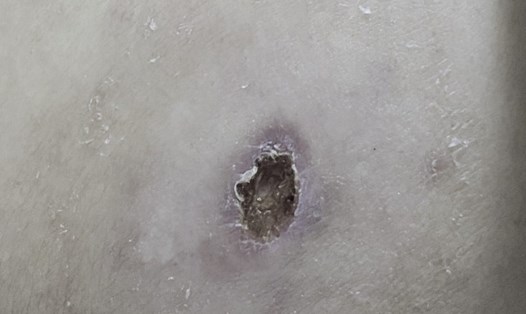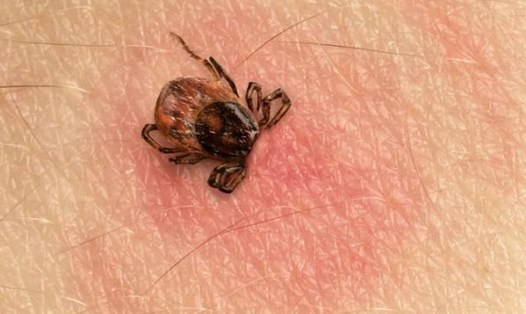The Department of Infectious Diseases, Institute of Clinical Medicine for Infectious Diseases - 108 Central Military Hospital continuously received many cases of sepsis and discovered the real cause was Korean fever.
Dr. Trinh Van Son, Head of the Department of Gastroenterology, said that this is an acute infectious disease caused by the bacteria Orientia tsutsugamushi, transmitted to humans through the bite of the tick trung (red tick). Although treatment is possible, if delayed, the disease can lead to serious complications and death.
Patient N.T.C, 70 years old, often gardens in places with many trees and thickets, and was hospitalized after 6 days of continuous high fever, fatigue, and difficulty breathing. In the lower limb, the patient was diagnosed with sepsis but did not improve. When transferred to the 108 Central Military Hospital, doctors discovered a characteristic ulcer in the armpits, and a blood PCR test confirmed positive for O. tsutsugamushi. After treatment with specific antibiotics, the patient quickly stabilized and was discharged from the hospital.
" Diabetes has symptoms of high fever, headache, rash, multiple organ damage... similar to many other fever diseases such as dengue fever, welding, malaria. The important characteristic to recognize is ulcers with duodenum and redness - a sign that only occurs when a doctor examines meticulously," said Dr. Trinh Van Son.
If detected early and treated according to the regimen, the patient will usually recover after 13 days. On the contrary, delays can cause pneumonia, heart attack, multiple organ failure, septic shock, and even death; pregnant women are also at risk of miscarriage or stillbirth.
Parasite is often sheltered in bushes, rice fields, and forest cover - a humid, rambling environment. The disease is active during the hot rainy season, peaking from May to October in the North and all year round in the South. There is currently no vaccine, so disease prevention is mainly by clearing forest dust, keeping the home hygienic, not drying clothes in humid places, and wearing protective gear when working outdoors.
Experts recommend that a small bite can have serious consequences. Improving awareness, early detection and timely treatment is the key to protecting the health of yourself and the community.









